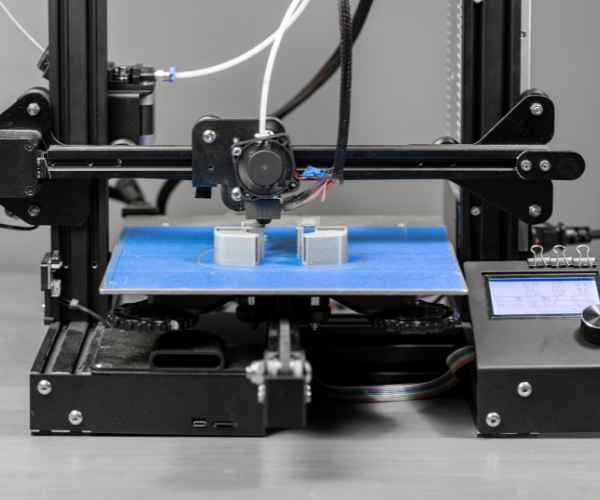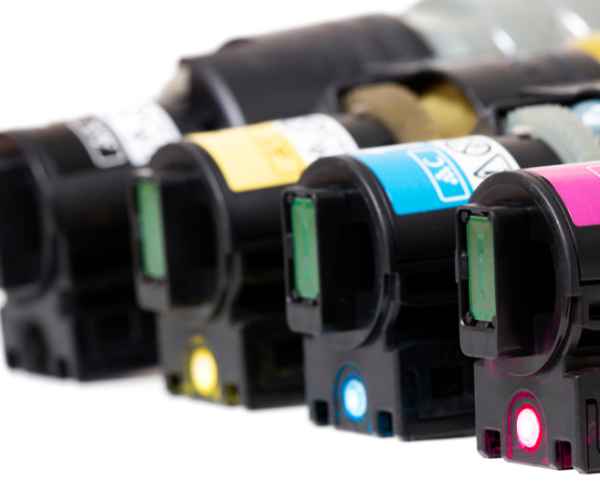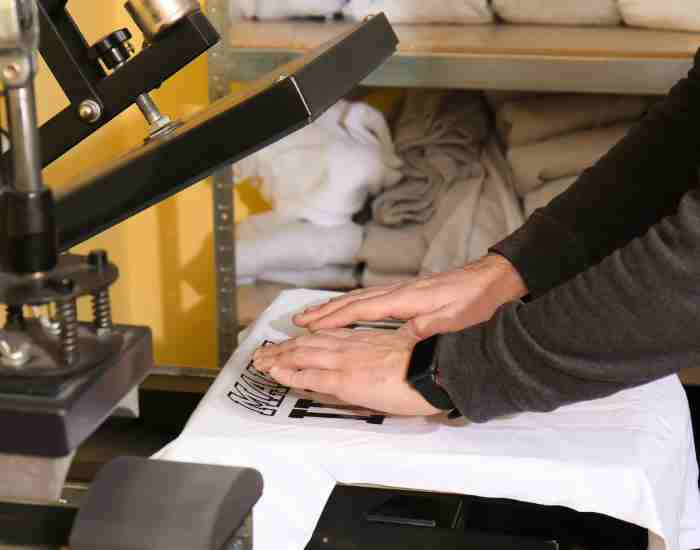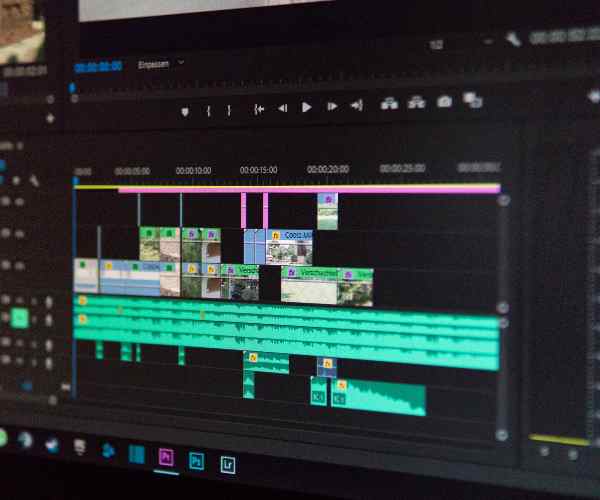The sudden increase in popularity of customizable wall decoration is what started the growth in the canvas printing industry on a worldwide scale. Everyone now needs high-quality prints on canvas due to the fact that canvas prints continue to gain importance in home decoration.
From a colorfully printed banner to a massive building wrap that has been wrapped around the buildings, every item needs the appropriate canvas printer for it to turn out great. Home walls should now be decorated with re-defined personal style in the form of original beautiful, and artistic wall paintings, and a good – nay, great – printer fulfills that need Paris Fashion Week by using the best canvas printing technology.
The question is how to choose a reasonable priced and the finest quality canvas printer for your needs. This guide touches upon the entire spectrum of buyers in it. So, let us unravel the secrets of top canvas prints.
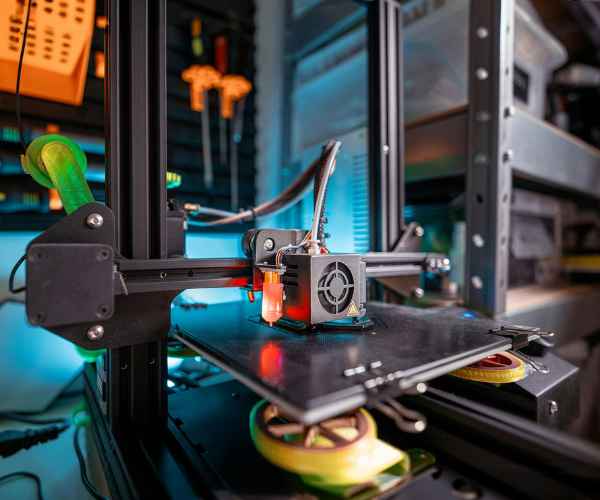
What makes a printer stand out?
Selecting a printer which transfers images onto a piece of canvas is not as easy as one may think because there are several factors that need to be taken into consideration. Let us have a look at the most important ones:
Print Quality
For anyone who is in the art industry, explicit print quality is the most important detail that canvas printer should have, which is equal to painting quality. With the increasing development in technology, prized artwork can be placed digitally on the canvas.
Printers that use cutting-edge technology have heads that can handle insanity levels of detail, allowing them to produce what still life should look like in ultra-high resolution. Images that are printed on higher settings tend were to have a more appealing look than low grade settings, and this is the reason why image quality is so crucial to canvas prints.
Additionally, pigment-based inks make the colors last longer and become bolder, resulting in excellent prints that do not discolour too quickly. The printers made by Epson and Canon are nowadays most popular because the inks they produce are effective in losing high temperatures and retain their vibrant easiness for years to come.
Color Accuracy
It is essential in canvas printing to maintain color integrity that is required for the original painting or photo to be replicated perfectly. Consequently, many might argue that even the slightest change in the color may alter the picture’s appeal and the emotional feeling tied to the print.
Research conducted by leading universities has shown that prints with accurate color representation are preferred by consumers and are more likely to evoke positive emotions and perceptions. By using colored management paired with a calibration tool through inkjet printers, it is made fairly easy to reproduce accurately where the printed canvas canvas has the decaled colors that of the digital image.
A case in point is the Epson SureColor P800 printer. It utilises an ultraChrome HD ink set which contains nine pigment based inks, with three levels of black which enables it to reproduce greyscale more closely to real life. With such keen focus on color accuracy, this printer is favored by many photographers and other artists who want their work to be printed on canvas.
Durability
Apart from print quality and color accuracy, canvas prints’ durability relative to the consumers and the artists is another major factor. A top canvas printer should utilize archival-quality materials and construction techniques to ensure that prints withstand the test of time and environmental factors.
For example, printers do wide-format printing using high-quality inks and does printing on acid-free canvas substrates.engage in such practices, they stand above the rest when it comes to producing prints that are exceptionally moisture and UV resistant as well as extremely durable. The work carried out by the studios of International Fine Art Conservation asserts that archival prints preserved with the right material can maintain their original qualities even after a century has passed. Such features are the utmost requirement for safeguarding significant events and wonderful pieces of art.
Real-life Examples
Let us look at some real-world frameworks demonstrating the influence of some of the best canvas printing services around us on print quality and aesthetics.
Example 1: Jane Smith, a photographer, confidently uses Canon ImagePROGRAF PRO-1000 while reproducing her stunning canvas photographs, she works her magic on the newly added multitude of colors, weaving her artistic interpretation of the vibrant foliage and gentle light gradients. Apart from art collectors and cameras, this has been well received by other canvas photographers as well, who have had the opportunity to use the newly developed 12 color Lucia Pro dye as well as the newly developed color management system.
Example 2: John Doe a digital artist uses the Epson SureColor P700 inkjet printer and turns his artwork into striking canvas prints. The 10 color UltraChrome PRO10 ink set together with high quality black density technology had a visible impact on the richness of details enabling John, like many other canvas print artists, to express their creativity more confidently at exhibition galleries, and online platforms.
These examples are a good proof for best canvas printing companies’ ability to turn simple paintings and images into great pieces of art that are hard to forget and relate to.
Navigating the Canvas Printing Industry
This section seeks to examine the ever-evolving world of canvas printing, including the characteristics of the market, consumer behavior, and the different types of printing technology that exist in the world today. Let’s seek understanding on what influences the decisions made by consumers regarding the choice of a canvas printer.
Analyzing market trends and consumer preferences
In order to comprehend the canvas printing business, one has to look into trades and what the consumers currently are purchasing. The Worldwide canvas printing industry is expected to maintain its 7.2 percent annual growth rate between 2021 and 2026 due to the rising need for customized home furnishings and artistic creations, per a report by Research Market Future.
As a result of digital printing’s improved capabilities and an abundance of online printing sites, people can now quickly convert their preferred images, artwork, and designs into excellent canvas prints, which is a method that is rapidly gaining traction. Moreover, there is a growing interest in canvas prints as a form of wall art which is custom.
As it turns out, Statista’s research suggests that millennials and Gen-Z customers appreciate canvas prints especially due to the fact that they are an efficient and an affordable way to decorate their home. Since these classes are inclined towards self-expression, there is an increasing customer requirement for personalized canvas printing services.
Inkjet Printing vs. Dye-Sublimation Method
As of now, there are two major technologies available for canvas printing, inkjet and dye sublimation. Each method has its own benefits and shortcomings suitable for fulfilling different requirements in the printing and design business.
Inkjet Printing
Inkjet printing continues to be the most affordable method to produce canvas prints since it is easy to access. Inkjet printers use tiny drops of ink to print images onto a canvas, giving it realistic colors and soft edges.
Pros:
Versatility: Inkjet printers can be used with a large variety of media such as canvas, photo paper as well as fine art papers which helps with artistic flexibility.
Color Accuracy: Being equipped with advanced technology, the inkjet printers are able to reproduce accurate and realistic colors close to the digital image.
Affordability: Hobbyists or small businesses looking to invest into printers are able to do so as entry-level inkjet printers are affordable increasing accessibility.
Cons:
Speed: Inkjet printing does tend to be more time consuming than other types, especially when it comes to large format canvas prints.
Economics:Since inkjet printers seem to use up a whole lot of ink, maintenance costs will begin to rise over time and becomes quite an issue when it comes to mass printing.
Dye-Sublimation Printing
Dye-Sublimation Printing Printing on dye sub printers allows for the greatest color vibrancy and it always aiming for best durability. This is why most professional photographers and artists, seeking museum quality canvas prints using these printers.
Pros:
Color Brilliance: Since dye sub printers always aim to saturate the colors on paper or canvas they have an insane amount of color print ensuring greate paints.
Durability: Due to moisture and scratching bullying for sublimated prints sublimation now has becoming a last resort to achieve longer durability.
Speed: Since always trying to accomplish a high market demand and being easy to move dye sub printers guarantee fast production times.
Cons:
Competitive: The market for dye sublimation printers themed apparel is so competitive that many companies have started shiokingly selling with polyester base substrates and dyes in bulk.
Economics: Even though poly fabrics are inexpensive blank canvases very treiter it doesn’t suffice up with the colors on display as with dye sublimation, thus adding to the overall price of drunken blanks.
Popular Brands and Models:
When speculating the satisfaction of the customer needs to be taken into account most companies like Wasp and Lars development have put out popular brands and models.
Canon imagePROGRAF Series
The Canon imagePROGRAF Series printers have received significant recognition and popularity as wide format printers among professionals and enthusiasts due to its impressive printing quality and reliability. The PRO-1000 and PRO-2000 models are especially useful as they provide the users with high resolution printing capabilities, advanced color management tool, and are compatible with a wide variety of media formats making it very convenient for canvas printing.
Epson SureColor Series
The SureColor P800 and P700 models developed by Epson are part of their SureColor Series and are especially known for their precision, versatility and longevity when it comes to their usage as inkjet printers. The integration of ultra-chrome HD pigment inks, more advanced media handling options and creative and professional workflow software allows the users to create great canvas prints with relative ease.
HP DesignJet Series
On the other hand, a lot of Business’s and professionals prefer to use HP wide format printers that are part of the design jet series as they are able to provide fast speed while also maintaining color accuracy alongside robust media handling capabilities. The Design Jet Z9+ and Z6 models are a great example of these features as they can be used for canvas prints of all sizes.
Inkjet vs Dye-sublimation: Which is Better?
If you’re looking to decide between inkjet and dye-sublimation printing technologies for canvas printing, you must consider and reflect on your requirements, ends goals and budget, as doing so can help steer the right course.
Inkjet Printing
For those people and companies that want something that is economical, user-maintained and has a broad range of abilities, inkjet printing is the way to go. A wide variety of things including canvas, photo and run of the mill printers can be utilized enhancing the print out quality and colors. For personal use such as gifting or small scale business projects canvas prints can be made easy with the use of inkjet printers.
Dye-Sublimation Printing
For self-employed photographers, artists and businesses working with dye sublimation printing the need for a vast gradient of colors with enhanced durability and speed is met successfully. However these printers pose a problem when it comes to the upfront cost. Despite the price tag they do offer gallery grade canvas prints. For large scale environments like production, art exhibitions or business projects they are perfect as they are able to produce quality pieces fast and accurately.
All in all, whether an individual goes for either inkjet or dye sublimation exclusively comes down to the type of requirements needed and budget available. By grasping information about each technology one is able to align themselves with their exact requirements needed for their canvas printing needs.
In this section we are going to be looking at key characteristics of canvas printers that are necessary for providing high quality prints. These characteristics are going to be extremely beneficial in your decision of which printer to purchase.
Discussing Essential Features
There are some core features that should be considered when assessing the suitability and affordability of a canvas printer to determine if it can support your printing needs. Let us go through these features one by one.
Resolution
The resolution of a printer denotes the level of precision and detail the printer can output on the canvas. Larger resolution provides greater clarity in the print, allowing the details and gradients to be smoother. This is great for artists, as it makes their designs stand out by being true to the original art.
According to a study by Stanford University, images that have a relatively higher resolution appear to be more professional, which gets the viewers engagement, leading to increased customer satisfaction.
When buying a Canvas Printer, always prefer the ones that provide high resolutions. Canvas printers usually operate in dots per inch(dpi), for optimal print quality for large images and formats a resolution of at least 300 dpi is suggested.
Ink System
The ink system of a canvas printer is essential for defining the color specifications, vibrancy, and retention of the prints for longer durations. Depending on the type of the printer used and its requirements, the printer may have different formulations of ink such as dye-based and pigment-inks, both having pros and cons to their usage.
Canvas black and white prints are known to have pinctuated edges due to which pigment based inks are widely used because its color accuracy, durability and faded edges are superior to other inks. The Massachusetts Institute of Technology or MIT, has researched, where it was concluded that, prints with pga based ink are less prone to wear and tear from elements like light, moisture and air pollution making the prints durable and of high quality intended for storage.
Ark, there are quite a few canvas printers on the market, a more suitable option would be those fitted with pigment based in systems such as the Canon Lucia or Epson UltraChrome ink sets. This is because, these ink sets and models are advanced and provide accuracy with the colors used, deep blacks and have superb fade resistance, therefore, capable of printing high quality muted canvas.
Media Handling Capabilities
The media handling capabilities of a canvas printer include the printers ability to print over sizes and types of a canvas media. Be it stretched canvas, roll canvas or specialty textured canvas’s, make sure while buying the printer that provides the specifications needed for the task at hand.
Search for canvas printers which support the media you need printed with features like adjustable paper trays, roll feeders, and front loading. Additionally, consider expansion on printer capabilities like borderless printing which let you have clean edges on your canvas prints.
By selecting a canvas printer with robust media capabilities, you can unleash your creativity when working with canvas materials and printing in different sizes.
Providing a Checklist for Evaluation
To assist you in evaluating canvas printers based on these essential features, we’ve compiled a handy checklist for reference:
| Feature | Description |
|---|---|
| Resolution | Check the printer’s dpi specifications and ensure it meets or exceeds the desired resolution. |
| Ink System | Verify that the printer uses pigment-based inks for optimal color accuracy and fade resistance. |
| Media Compatibility | Ensure the printer supports a variety of canvas media types and sizes to accommodate your needs. |
| Color Management | Look for printers with advanced color management tools and calibration options for accurate color reproduction. |
By systematically assessing canvas printers against these criteria, you can identify models that align with your artistic vision, printing goals, and budget constraints.
Offering Insights on Each Feature
The quality and the performance of a winch printer is further improved with the integration of the features mentioned above.
- Resolution: As the resolution increases, the details become sharper and the transitions more pronounced making the canvas prints more attractive.
- Ink System: With pigment inks, colors are vividly replicates and remain vibrant for many years ensuring that canvas prints do not fade.
- Media Handling Capabilities: Elastic fabric handling capabilities allow you to go all out trying different canvas materials and sizes which add new thickness levels to your effective creativity as an artist.
By comprehending how the aforementioned features affect the process of canvas printing, you are better able to decide how to maximize the quality and effectiveness of your canvas prints.
FAQ
What is a Good Resolution for Canvas Prints?
While defining the right resolution for a canvas print always try to keep in mind the distance from which the print will be viewed, size and quality. Such prints are usually viewed at a distance so as a general rule it is safe to maintain a minimum resolution of 300 or sometimes even 350 dpi especially for boards or fine art copies.
For billboards, posters and other similar items that will be viewed from a distance, a low resolution will do but like previously stated a proper balance needs to have been established between the distance and the resolution.
According to a research study by Harvard University, people tend to react more positively to images that have been professionally designed such images that have a higher resolution as compared to others. Hence, it would be advisable to invest in a canvas printer that can print high resolution images as it will improve the quality of the canvas prints.
How Important is Color Accuracy in Canvas Printing?
While color accuracy is important for any of the printing processes, it becomes highly critical for canvas printing as it defines the true quality and authenticity of the image. Color accuracy for images such as artwork, photos and even digital drawings printed on canvas is very important.
There have been researches by MIT which have pointed out that people consider paintings to be more authentic and appealing to the eyes if watch feels like the print comes close to the original colors therefore the viewer’s degree of interaction with the art greatly increases.
In order to print a canvas, the printer needs to be calibrated and color management must be employed in order to keep color accuracy and precision in check and the color reproduction on multiple devices and substrates is kept maoodle and efficient. When the printer features are calibrated, the chances of any ambiguities of the canvas images increase drastically.
Is It Really Possible For A Regular Printer To Print On A Canvas?
Bear in mind that not every printer on the market is suitable for every task, and a canvas printer is explicitly designed to work with canvases, if you want to produce good impressions with a canvas, you are encouraged to buy a canvas printer specifically made for that purpose.
If you want to start a printer project for the purpose of printing on a canvas then all you need is an algebraic system and a media handling device along with a management tool. Picture this, a noise-free canvas is your ultimate goal, use one of these systems to ensure accurate print quality, the larger the printer the better as painting principles greatly assist with artistic endeavors.
Also, by investing more money and time into a dedicated canvas printer a major feeling of professionalism and quality is being felt, this greatly helps separate you from the herd, made the value of the canvas prints much greater in the eyes of collectors and clients.
Final
So, during the canvas printing process, we advise you to follow the above-mentioned crucial steps, considering media type, the canvas printer brand of your choice, and features. Do not forget to do thorough research before purchasing a printer. All the features will appear promising, but try to look outside functionality as well. Make sure it has a wide print range, exactly what you need and want to de with your art of canvas printing.
Hopefully, this information pushes you towards achieving your aim of purchasing high quality printers that ensure that the prints are of professional standards. Just remember to look out for the right models to suit your needs and styles with the right brand combinations including printers, inks, and different media types and you should be fine.
More Post

